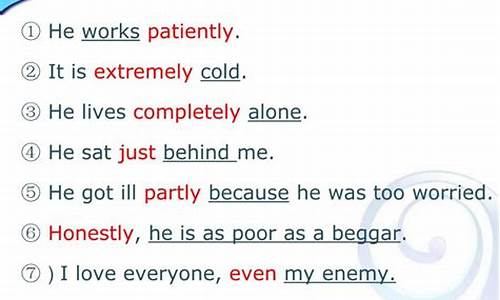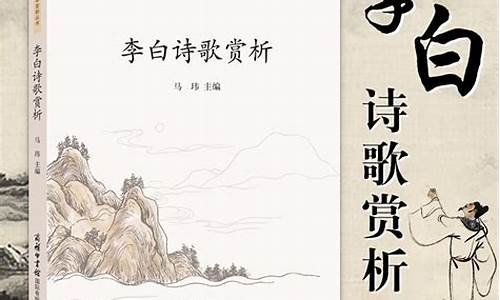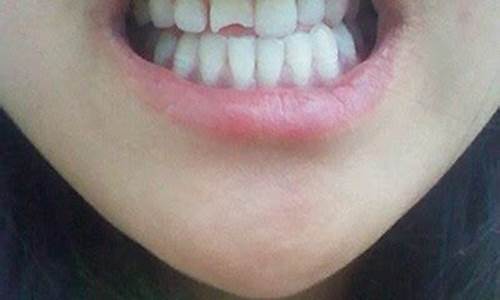您现在的位置是: 首页 > 名人语录 名人语录
句子的英语有哪些_句子的英文单词的英文怎么写
tamoadmin 2024-08-23 人已围观
简介1.英语句子的类型有哪些?2.句子类型有哪些英语3.励志的英语句子有哪些4.励志英语句子唯美简短5.有哪些英语的励志句子6.主谓结构的英语句子有哪些?7.英语的基本句型有哪些1、The trees, like the longings of the earth, stand atiptoe to peep at the heen. 群树如表示大地的愿望似的,踮起脚来向天空窥望。 2、The fis
1.英语句子的类型有哪些?
2.句子类型有哪些英语
3.励志的英语句子有哪些
4.励志英语句子唯美简短
5.有哪些英语的励志句子
6.主谓结构的英语句子有哪些?
7.英语的基本句型有哪些

1、The trees, like the longings of the earth, stand atiptoe to peep at the heen.
群树如表示大地的愿望似的,踮起脚来向天空窥望。
2、The fish in the water is silent, the animal on the earth is noisy, the bird in the air is singing. But Man has in him the silence of the sea, the noise of the earth and the music of the air.
水里的游鱼是沉默的,陆地上的兽类是喧闹的,空中的飞鸟是歌唱着的。但是,人类却兼有海里的沉默,地上的喧闹与空中的音乐。
3、The world rushes on over the strings of the lingering heart making the music of sadness.
世界在踌躇之心的琴弦上跑过去,奏出忧郁的乐声。
4、spring is a lot of rain,summer is hot,autumn is the best season in a year,it is cool and busy ,winter is cold and sonetimes snowy.
春天是多雨的,夏天是炎热的,秋天是一年中最好的季节,它很凉爽而且忙碌,冬天是寒冷的,有时会下雪。
英语句子的类型有哪些?
一、陈述句:是用来陈述一件事情或表示一种看法,可分为肯定句和否定句两种形式。
1、谓语动词是be动词,助动词he, has, will,情态动词can等时,只要直接在这些词后面加not就构成否定形式。
eg. Lily has already read this new book. (改为否定句)
Lily ______ ______ this new book ________.
2、谓语动词是行为动词而又没有助动词或情态动词时,必须在谓语动词前加助动词,一般现在时加助动词do ,第三人称单数加does,一般过去时加did,再和not构成否定结构。必须指出的是:don't, doesn't, didn't后都用动词原形。
eg.1)Jill has lunch at school every day. (改为否定句)
Jill _____ _____ lunch at school every day.
2)The children had a good time at the party. (改为否定句)
The children ______ _____ a good time at the party.
3)Rose didn't drink any milk this morning.(改为肯定句)
Rose ______ ______ milk this morning.
二、疑问句:是用来提出问题的句子。
A.一般疑问句:以be动词, he /has/do等助动词、can/may等情态动词开头,以yes或no来回答的问句。
它的基本结构是:Be/He /Has/Did等助动词(包括情态动词)+主语+谓语(包括表语)+┄?回答常用简略回答。
1、谓语动词是be动词、助动词、情态动词时,只要直接把这些词置于句首,句末改成问号。
eg. There's something wrong with his bike.(改成疑问句)
______ _____ _______ wrong with his bike?
2、谓语动词是行为动词时,必须在句首加上助动词Do、Does(三单)、Did(过去式)加上这些助动词后,句子中谓语动词必须用原形。
eg. 1)Edison built a science lab himself when he was ten. (改成疑问句)
______ Edison ______ a science lab himself when he was ten?
2)Those Japanese like Chinese food.(改成疑问句)
______ those Japanese ________ Chinese food?
注意:在把肯定句改成否定句或一般疑问句的时候,要注意句中是否有already、some、something、somebody等词,如果有也必须进行改变,already要改成yet,some、something、somebody等分别改成any、anything、anybody等。另外,在改成否定句的时候注意把too改成either,both改成neither,all改成none等.在改成一般疑问句的时候,常常把第一人称I、we改成第二人称you。
B.特殊疑问句:以疑问代词或疑问副词开头,提出疑问的句子。
它的基本结构是:特殊疑问词+一般疑问句语序。但是如果疑问词在句子中作主语或作主语的定语,就用特殊疑问词+陈述句语序。常用的疑问词有:what, who(whom), whose,which,when,where,how,why等,回答时针对问句中的代词和副词来回答,不用yes或no来回答。
1)对指物名词或谓语动词提出疑问,疑问词用what
①The twins were making a kite when their mother came in. (划线提问)
______ _____ the twins _____ when their mother came in?
②Mrs Turner asked her son to buy some eggs for supper. (划线提问)
_______ ______ Mrs Turner ask her son ______ _______?
2)对名词前定语提出疑问,疑问词应用which,而且必须和名词连用。
I'm going to take the shirt on the right.(划线提问)
______ _____ are you going to take?
3)对指人名词或代词提问用who,作宾语时提问用whom。
eg.Li Ping,they,his father
4)对物主代词和名词所有格提问用whose。
eg. Li Ping's coat→Whose coat my father→Whose father
5)对具体时间提出疑问,如 in the morning,last Sunday等,疑问词用when;对具体几点钟提问,疑问词应用what time。
6)对具体地点提出疑问,疑问词应用where。
The pupils are hing a picnic at the foot of the hill. (划线提问)
_____ _____ the pupils hing a picnic?
7)对表原因的从句提问,常见的有because引导的从句,疑问词应用why。
Xiao Cheng didn't go to the farm with us because he was ill. (划线提问)
_______ _____ Xiao Cheng go to the farm with us?
8)对方式或程度等提出疑问,用疑问词How。
eg. go by bike like very much
9)对数量提出疑问,疑问词为How many,要注意how many必须跟名词的复数形式。
eg. two hundred sheep→How many sheep
10)对价格提出疑问,疑问词用How much。
eg. I paid fifty yuan for the sweater.
______ ______ did you pay for the sweater?
11)对时间长度提出疑问,疑问词应用How long。
eg. I've worked in that factory for two years. (划线提问)96中考题
______ _____ _______ you worked in that factory?
12)对时间频率,如 once a year, twice a week等提问,疑问词用How often。
13)对具体次数,如 once, twice, three times等提问,疑问词用How many times。
eg. ______ did he call you the day before yesterday?Twice. 96中考题
A.What time B.How many times C.How much D.How long
14)对in+一段时间提问,疑问词一般用How soon。
eg. Jane and her brother will finish the work in two hours. (划线提问)
_____ _____ _____ Jane and her brother finish the work?
15)对距离提出疑问,疑问词用How far。
eg. It's about two kilometres from here to the country.(划线提问)
______ _____ _____ _____ from here to the country?
16)另外,对日期、星期、天气等提出疑问,则分别用
What's the date?
What day is it ? 如果是过去时间,就用was代替is。
What's the weather like?
练习题
1)She does exercises at home in the evening.(改成否定句、一般疑问句)
She ______ ______ exercises at home in the evening.
______ she _____ exercises at home in the evening?
2)He said something important at the meeting.(改为否定句,一般疑问句)
He _____ ______ ______ important at the meeting.
______ he ______ ______ important at the meeting?
3)It'll take them three weeks to finish the work.(划线提问)
______ ______ _______ it take them to finish the work?
4)I he to wash all the plates and things after meals.(划线提问)
_____ _____ you he to wash all the plates and things?
5)The woman in the red coat is her mother.(划线提问)
______ ______ is her mother?
6)Li Ping spent twenty yuan on the dictionary.(划线提问)
_____ ____ ____ Li Ping _____ on the dictionary?
思考题
1)The worker's visited the factory already.(改成否定句、一般疑问句)
The worker _____ _____ the factory ______.
____ the worker ___ the factory __?
2)Both of his parents are workers.(改成否定句)
___ of his parents ______ a worker.
3)He went to the park with his sister.(划线提问)
_____ ____ ____ he go to the park?
4)We really enjoyed working on the farm.(划线提问)
What _____ you really enjoy ______?
5)She writes to her parents once a week.(划线提问)
_______ ______ ______ she write to her parents?
6)Our P.E teacher has been at this school since he came.(划线提问)
______ ______ ______ our P.E teacher been at this school?
一、陈述句:是用来陈述一件事情或表示一种看法,可分为肯定句和否定句两种形式。
1、谓语动词是be动词,助动词he, has, will,情态动词can等时,只要直接在这些词后面加not就构成否定形式。
eg. Lily has already read this new book. (改为否定句)
Lily ______ ______ this new book ________.
2、谓语动词是行为动词而又没有助动词或情态动词时,必须在谓语动词前加助动词,一般现在时加助动词do ,第三人称单数加does,一般过去时加did,再和not构成否定结构。必须指出的是:don't, doesn't, didn't后都用动词原形。
eg.1)Jill has lunch at school every day. (改为否定句)
Jill _____ _____ lunch at school every day.
2)The children had a good time at the party. (改为否定句)
The children ______ _____ a good time at the party.
3)Rose didn't drink any milk this morning.(改为肯定句)
Rose ______ ______ milk this morning.
二、疑问句:是用来提出问题的句子。
A.一般疑问句:以be动词, he /has/do等助动词、can/may等情态动词开头,以yes或no来回答的问句。
它的基本结构是:Be/He /Has/Did等助动词(包括情态动词)+主语+谓语(包括表语)+┄?回答常用简略回答。
1、谓语动词是be动词、助动词、情态动词时,只要直接把这些词置于句首,句末改成问号。
eg. There's something wrong with his bike.(改成疑问句)
______ _____ _______ wrong with his bike?
2、谓语动词是行为动词时,必须在句首加上助动词Do、Does(三单)、Did(过去式)加上这些助动词后,句子中谓语动词必须用原形。
eg. 1)Edison built a science lab himself when he was ten. (改成疑问句)
______ Edison ______ a science lab himself when he was ten?
2)Those Japanese like Chinese food.(改成疑问句)
______ those Japanese ________ Chinese food?
注意:在把肯定句改成否定句或一般疑问句的时候,要注意句中是否有already、some、something、somebody等词,如果有也必须进行改变,already要改成yet,some、something、somebody等分别改成any、anything、anybody等。另外,在改成否定句的时候注意把too改成either,both改成neither,all改成none等.在改成一般疑问句的时候,常常把第一人称I、we改成第二人称you。
B.特殊疑问句:以疑问代词或疑问副词开头,提出疑问的句子。
它的基本结构是:特殊疑问词+一般疑问句语序。但是如果疑问词在句子中作主语或作主语的定语,就用特殊疑问词+陈述句语序。常用的疑问词有:what, who(whom), whose,which,when,where,how,why等,回答时针对问句中的代词和副词来回答,不用yes或no来回答。
1)对指物名词或谓语动词提出疑问,疑问词用what
①The twins were making a kite when their mother came in. (划线提问)
______ _____ the twins _____ when their mother came in?
②Mrs Turner asked her son to buy some eggs for supper. (划线提问)
_______ ______ Mrs Turner ask her son ______ _______?
2)对名词前定语提出疑问,疑问词应用which,而且必须和名词连用。
I'm going to take the shirt on the right.(划线提问)
______ _____ are you going to take?
3)对指人名词或代词提问用who,作宾语时提问用whom。
eg.Li Ping,they,his father
4)对物主代词和名词所有格提问用whose。
eg. Li Ping's coat→Whose coat my father→Whose father
5)对具体时间提出疑问,如 in the morning,last Sunday等,疑问词用when;对具体几点钟提问,疑问词应用what time。
6)对具体地点提出疑问,疑问词应用where。
The pupils are hing a picnic at the foot of the hill. (划线提问)
_____ _____ the pupils hing a picnic?
7)对表原因的从句提问,常见的有because引导的从句,疑问词应用why。
Xiao Cheng didn't go to the farm with us because he was ill. (划线提问)
_______ _____ Xiao Cheng go to the farm with us?
8)对方式或程度等提出疑问,用疑问词How。
eg. go by bike like very much
9)对数量提出疑问,疑问词为How many,要注意how many必须跟名词的复数形式。
eg. two hundred sheep→How many sheep
10)对价格提出疑问,疑问词用How much。
eg. I paid fifty yuan for the sweater.
______ ______ did you pay for the sweater?
11)对时间长度提出疑问,疑问词应用How long。
eg. I've worked in that factory for two years. (划线提问)96中考题
______ _____ _______ you worked in that factory?
12)对时间频率,如 once a year, twice a week等提问,疑问词用How often。
13)对具体次数,如 once, twice, three times等提问,疑问词用How many times。
eg. ______ did he call you the day before yesterday?Twice. 96中考题
A.What time B.How many times C.How much D.How long
14)对in+一段时间提问,疑问词一般用How soon。
eg. Jane and her brother will finish the work in two hours. (划线提问)
_____ _____ _____ Jane and her brother finish the work?
15)对距离提出疑问,疑问词用How far。
eg. It's about two kilometres from here to the country.(划线提问)
______ _____ _____ _____ from here to the country?
16)另外,对日期、星期、天气等提出疑问,则分别用
What's the date?
What day is it ? 如果是过去时间,就用was代替is。
What's the weather like?
练习题
1)She does exercises at home in the evening.(改成否定句、一般疑问句)
She ______ ______ exercises at home in the evening.
______ she _____ exercises at home in the evening?
2)He said something important at the meeting.(改为否定句,一般疑问句)
He _____ ______ ______ important at the meeting.
______ he ______ ______ important at the meeting?
3)It'll take them three weeks to finish the work.(划线提问)
______ ______ _______ it take them to finish the work?
4)I he to wash all the plates and things after meals.(划线提问)
_____ _____ you he to wash all the plates and things?
5)The woman in the red coat is her mother.(划线提问)
______ ______ is her mother?
6)Li Ping spent twenty yuan on the dictionary.(划线提问)
_____ ____ ____ Li Ping _____ on the dictionary?
思考题
1)The worker's visited the factory already.(改成否定句、一般疑问句)
The worker _____ _____ the factory ______.
____ the worker ___ the factory __?
2)Both of his parents are workers.(改成否定句)
___ of his parents ______ a worker.
3)He went to the park with his sister.(划线提问)
_____ ____ ____ he go to the park?
4)We really enjoyed working on the farm.(划线提问)
What _____ you really enjoy ______?
5)She writes to her parents once a week.(划线提问)
_______ ______ ______ she write to her parents?
6)Our P.E teacher has been at this school since he came.(划线提问)
______ ______ ______ our P.E teacher been at this school?
句型转换题是中考常见题型,它主要用来考查大家对句子结构的构成、变化的掌握及在行文中的运用等,类型繁多。现以近两年中考题为例,分类介绍如下:
[第一类] 改成否定句
英语中有关否定的结构各不相同,除动词部分构成的否定外,还有名词、代词的否定、部分否定、否定转移、以及一些表示否定意义的短语或句型等。
一、含有连系动词、情态动词等助动词的句子改为否定句时,在连系动词、情态动词等的后面加not就行了。如:(划线部分为正确答案,下同。)
1. He was late for school yesterday. (2005黑龙江省泰州市)
He wasn’t late for school yesterday.
2. The students of No.2 Middle School he gone for a picnic already. (2004新疆)
The students of No.2 Middle School hen’t gone for a picnic yet.
二、祈使句变否定句一般在其前加don’t。如:
3. Open the window. (2005江苏省)
Don’t open the window.
三、实义动词的否定式是在实义动词前加don’t, doesn’t, didn’t等。如:
4. She does the housework every day. (2005黑龙江省哈尔滨市)
She doesn’t do the housework every day.
5. He returned the book to the library this morning. (2004重庆市)
He didn’t return the book to the library this morning.
注意:变否定句时须注意某些词语的变化,如some改为any, something改为anything, already改为yet, both改为neither, all改为none等。又如:
6. Both of them are my best friends. (2004甘肃省兰州市)
Neither of them is my best friend.
[第二类] 改为疑问句
可分为一般疑问句、选择疑问句和反意疑问句。
一、变一般疑问句时,含有连系动词、情态动词的句子,只需将它们移至句首,第一个字母变为大写,句尾改为问号即可。含有实义动词的句子,在实义动词前加do, does, did等。变化过程中也要注意某些词语和人称的变化。如:
7. There’s something to eat in the cupboard.(2005贵州省贵阳市)
Is there anything to eat in the cupboard?
8. Kate does morning exercises every day. (2004山东省济南市)
Does Kate do morning exercises every day?
9. Ann returned the book to the library yesterday. (2005四川省成都市)
Did Ann return the book to the library yesterday?
二、变选择疑问句时,如果该句是一般疑问句,则在后面直接加“or+另一选择部分”就行了;若是陈述句,则要先变成一般疑问句。如:
10. John is an American. (用a Canadian改为选择疑问句)(2004新疆)
Is John an American or a Canadian?
三、变反意疑问句时,要注意“前肯后否”和“前否后肯”,还要注意一些特殊形式的反意疑问句。如:
11. She has hardly had anything this morning, has she?(2005山东省泰安市)
12. You will meet your friends at the railway station, won’t you?(2004重庆)
13. She had nothing for breakfast, did she?(2005青海)
14. There was no time for the twins to go shopping, was there?(2004黑龙江省哈尔滨市)
句子类型有哪些英语
英语中句子类型有哪四种
英语句子种类有两种分类:
1.按句子的用途分为四种:
陈述句、疑问句、祈使句、感叹句2.按句子结构可分为:
简单句、并列句、复合句
英语中句子种类有哪些?
宾语从句 主语从句 表语从句 双宾语从句 状语从句
英语的句子类型有哪几种
his head from a round window of the barn.
`Whet are ye for?' he shouted. `T' maister's
英语句子有那些种类
主谓宾
主系表
这是句子的构成
主语,谓语动词,宾语
名词代词是主语,谓语是动词,宾语和主语的构成一致
但是宾语要用宾格
英语里面有几种句子类型组成句子的结构有什么,比如什
1简单句、并列句、复合句
根据语法形式,即句子的结构,英语的句子可分为简单句、并列句和复合句.
1简单句
句型:主语+谓语
只包含一个主谓结构,而句子的各个结构都只由单词或短语表示.简单句有五种基本句型,详见第十七章.
They are playing baseball in the garden.
他们正在公园里打棒球.
Her brother and sister both are teachers.
她的哥哥和姐姐都是老师.
2并列句
句型:简单句+并列连词+简单句
(常见的并列连词有and,but,or)
并列句是由两个或两个以上的简单句连接而成.并列句中的各简单句意义同等重要,相互之间没有从属关系,是平行并列的关系.它们之间用连词连结.
My friend was at home,and we talked for along time.
我的朋友在家,我们谈了好长时间.
励志的英语句子有哪些
英语句子类型有:主语-系动词-表语(SVC);主语-动词-宾语(SVO);主语-动词-宾语-宾语(SVOO);主语-动词-宾语-宾语补足语(SVOC)。
一、主语-系动词-表语 (SVC)。
该句型中的谓语动词是系动词。系动词后接的部分可称为表语,也可称为(主语)补足语,主语补足语这一部分的主要功能是对主语进行说明、补充。英文中的系动词主要指Be动词的各种变化形式,也包括那些有时起系动词作用的实义动词。
此类动词常见的有:become(变成), look(看上去), seem(看起来), ear(相似、显得), get(变得), feel(摸起来), grow(变得), turn(变成), remain(仍然是), come(变得), fall(变得), hold(保持), keep(保持), stand(保持), stay(保持), smell(闻起来), sound(听起来), taste(尝起来)等。
二、主语-动词-宾语 (SVO)。
该句型中的谓语动词是及物动词,那么它必须带有自己的宾语。在英文中,当一个动词(包括单个动词和动词短语)作及物动词用时,它必须要有自己的宾语(除非是宾语在上下文里很明确地提到过,为避免不必要的重复,才会省去。),否则会视为“句子不完整”。
三 、主语-动词-宾语-宾语 (SVOO)。
该句型中的谓语动词后接两个宾语:前一个宾语称为“间接宾语”,多由代词或名词充当;后一个宾语称为“直接宾语”,往往由名词充当。
四、主语-动词-宾语-宾语补足语 (SVOC)。
该句型表示:有些及物动词的后面有时常带复合宾语结构(即:宾语 + 宾语补足语)。其中,宾语补足语是对宾语“做什么”、“怎么样”等方面进行补充说明,从意义和结构上来说是必不可少。在这一结构中,宾语和谓语动词是“动宾关系”,而宾语和其补足语在逻辑上却是“主谓关系”。
励志英语句子唯美简短
励志英文句子带翻译
1. Everything will change. The only question is growing up or decaying.
每件事都会变,问题在于前进还是后退。
2. Be the e of your life, not the victim.
做人生的主角,而不是受害者。
3. Courage is the most important of all virtues, because without courage, you cannot practice any of the other virtues consistently.
勇气是所有品质中最重要的。因为没有勇气,你就无法去保持其他的品质了。
4. You believe in yourself . That's the secret of success.
人必须相信自己,这是成功的秘诀。
5. Cease to struggle and you cease to live.
生命不止,奋斗不息。
6. Victory won't come to me unless I go to .
胜利是不会向我们走来的,我必须自己走向胜利。
7. Never give up, Never lose the opportunity to succeed
不放弃就有成功的机会。
8. Difficult circumstances serve as a textbook of life for people.
困难坎坷是人们的生活教科书。
有哪些英语的励志句子
1、You cannot change what you refuse toconfront。
你不去面对又怎么能去改变呢。
2、Life isn't about waiting for the storm topass, it's about learning to dance in the rain。
生活不是等待暴风雨过去,而是要学会在雨中跳舞。
3、No matter how manymistakes you make or how slow you progress, you are still way ahead of everyonewho isn't trying。
无论你犯了多少错,或者你进步得有多慢,你都走在了那些不曾尝试的人的前面。
4、If you are passionateabout something, pursue it, no matter what anyone else thinks。That's howdreams are achieved。
如果你想要什么,那就勇敢地去追求,不要管别人是怎么想的,因为这就是实现梦想的方式。
主谓结构的英语句子有哪些?
1、Great minds he purpose, others he wishes.
杰出的人有着目标,其他人只有愿望。
2、Being single is better than being in an unfaithful relationship.
比起谈着充满欺骗的恋爱,单身反而更好。
3、If you find a path with no obstacles, it probably doesn’t lead anywhere.
太容易的路,可能根本就不能带你去任何地方。
4、Getting out of bed in winter is one of life’s hardest mission.
冬天,将自己从被窝里掏出来,是人生最难的任务之一了。
5、The future is scary but you can’t just run to the past cause it’s familiar.
未来会让人心生畏惧,但是我们却不能因为习惯了过去,就逃回过去。
6、I love it when I catch you looking at me then you smile and look away.
我喜欢这样的时刻:我抓到你正在看我,你笑了,然后害羞地别过脸去。
7、Hing a calm smile to face with being disdained indicates kind of confidence.
被轻蔑的时候能平静的一笑,这是一种自信。
8、Success is the ability to go from one failure to another with no loss of enthusiasm.
成功是,你即使跨过一个又一个失败,但也没有失去热情。
9、Not everything that is faced can be changed, but nothing can be changed until it is faced.
并不是你面对了,任何事情都能改变。(励志歌曲 .lz13.cn)但是,如果你不肯面对,那什么也变不了。
10、A guy who whispers in your ears, saying ” It’s alright, I’m here.” Holds you when you’re sad, and treasures everything about you. That’s the guy I want to give my heart to.
那个人会在耳边轻声说:没事,我在这。在你悲伤时给你依靠,与你相关的,他都珍视。有这样的人,我爱定了。
英语的基本句型有哪些
1、He likes singing.
他喜欢唱。
2、We wish you a hy new year.
我们祝你新年愉快。
3、I saw a boy on my way home.
回家的我看见了一个男。
4、I can draw.
我会画画。
5、I think you are right.
我想你是对的。
6、We would like some water.
我们想要一些水。
7、The bird sings a beautiful song.
这只鸟唱了一首好听的歌。
8、My father ge me a present.
我父亲给了我一个礼物。
9、He wants to go.
他想走了。
10、You can lee a message.
你可以留言。
11、Everyone can choose his own lifestyle.
每个人都可以选择自己的生活方式。
12、I heard a big noise.
我听到一阵很大的噪音。
13、We he worked out the math problem.
我们已经算出了这道数学题。
关于英语五大基本句型的回答如下:
句型1:主语(主语)动词(谓语)例:我工作。句型2:主语(Subject)链接v (tie动词)预测(表语)例:约翰很忙。句型三:主语(主语)动词宾语(宾语)例:她学英语。句型四:主语(主语)动词(谓语)间接宾语(间接宾语)直接宾语(直接宾语)例:他给了我一本书。
句型五:主语(主语)动词宾语(宾语)+补语。
主谓句型。这是英语句子中最基本、最简单的句型,比如“是的,我愿意”,这是西式婚礼中经常说的。主客体。这是英语中使用最广泛的基本句型之一,与汉语中主语、谓语、宾语的表达方式基本一致,如“我爱你主语、谓语、双宾(直接宾语、间接宾语)”,
这是西方国家常用的表达爱的方式。比如“我可以给你一个苹果”(我可以给你一个苹果)作为主谓宾补,比如“你使我快乐”(你使我快乐),主谓宾成分很容易看出,快乐作为宾补补足了宾语“我”的状态使句子更加完整。主语动词表语例如,“你是我的妈妈”(你是我的妈妈)
句型——主谓正如我们所知,-一个句子用来解释一件事(或表达一种情感),最简单的表达方式是‘谁,是怎么回事?’这里的“谁”是句子的“主语”,有着丰富的内涵,如人、事、某些行为等。“发生了什么”是一个句子的谓语,由一个动词充当。主谓构成最简单的句子。
主宾句型2在句型1的基础上多了一个宾语。对象是什么?或者从用句子表达事物的角度,可以理解为“谁,谁出了什么事”。宾语是主语通过动作(谓语)起作用的宾语。
句型3-主语谓语间接宾语直接宾语在这个句型中,我们发现谓语后面有两个宾语,直接宾语是谓语动词直接作用的宾语,而间接宾语是指谓语在把动作转移到直接宾语之前需要依赖一个间接宾语
句型4-主谓宾宾语补语与句型2相比,这种宾语类型还有另一种高补语。“普祖酒”指的是蒲崇的解释,所以比奈普祖酒的作用是补充解释的对象。
句型5 1-主语系词表语你还记得系词吗?我们也在动词that-部分讨论过,所以这里就不复习了。这个句型是关于如何使用系动词的。谓词是系词后面的成分的总称,所以不要太担心它的意思。感官动词,后接形容词;动词be后面跟一个名词(或不定式等)。)。









